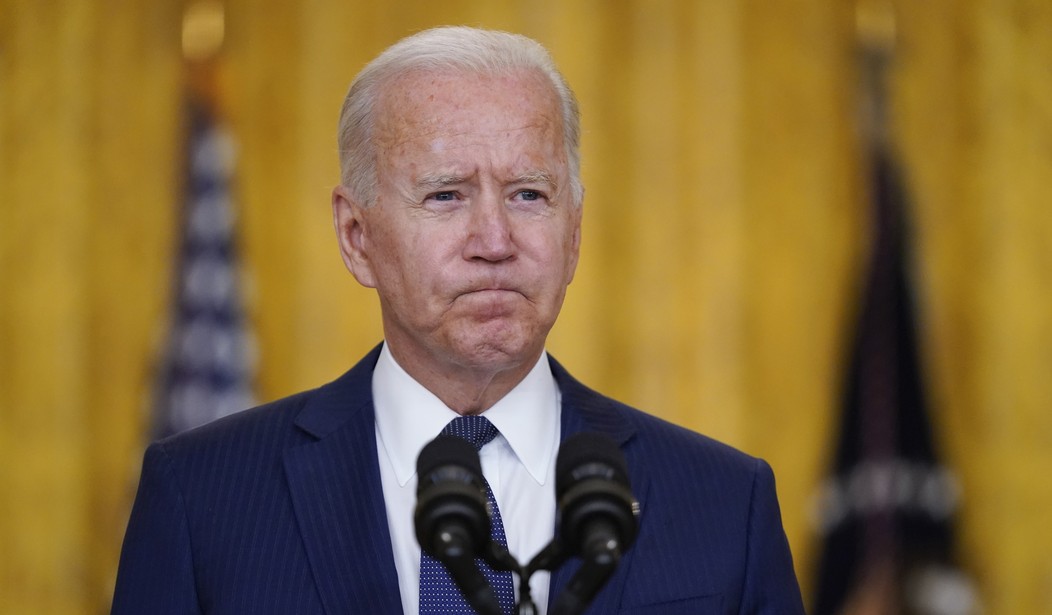How do we know? For one thing, most voters would prefer to impose term limits on the people promoting this idea rather than turn the federal judiciary into an even bigger political prize than it has become over the last several decades since Roe. However, Joe Biden’s Supreme Court “reform” commission punt has left progressives with no other option than to try yet another stupid and futile gesture in pushing for a constitutional amendment with no broad support whatsoever.
The Washington Post updates us on this effort to note that it’s not going well, surprise surprise:
President Biden’s commission to study structural revisions to the Supreme Court found one potential change both Democrats and Republicans have said they could support: implementing term limits for the justices, who currently have lifetime tenure.
Yet the bipartisan support among legal experts and the public for term limits isn’t catching on among elected officials on Capitol Hill who would be the starting point on any alterations to the makeup of the Supreme Court. Impatient liberals clamoring for change say enacting term limits would take far too long, while Republican lawmakers are loath to endorse changes they are characterizing as part of a broader effort from Democrats to politicize the judiciary.
The opposition from both corners adds another layer of doubt that proposals laid out and debated by Biden’s Supreme Court commission will translate into tangible action in the near future.
The commission wasn’t intended to create “tangible action.” No one in our system of government needs a commission to propose action, after all; any member of Congress can do so, and any president with at least one friend on Capitol Hill can get the process started. Presidents form commissions in most cases to avoid taking any action at all.
It’s been clear from the start — to everyone except progressives, it appears — that the one area in which Biden didn’t want to be FDR was in his relationship to the judiciary. He launched the commission to essentially run out a political clock, sapping the extremists of momentum on this point while harnessing their energy on projects more to Biden’s taste. And the commission delivered exactly what Biden needed for his strategy: a ponderous debate over tweaks to the Supreme Court and judiciary that went out of its way to avoid taking any firm stands on “reform.” Instead, they talked about relative popularity for each of the proposed changes, none of which added to a consensus position on any, including term limits.
Imposing term limits would require a constitutional amendment, a process that has no formal role for a president. That would take two-thirds votes in both chambers of Congress and ratification by three-quarters of the states (38 out of 50). At present, the Post points out, Republicans see this as a partisan exercise by Democrats who are sore that their appointees no longer dominate the Supreme Court rather than a dispassionate policy exercise. And they’re right, of course; no one wanted term limits on the Supreme Court or court-packing until Donald Trump got to appoint three Supreme Court justices, a success largely authored by Harry Reid’s detonation of the nuclear option in 2013 on presidential appointees, including judicial appointments below the Supreme Court. Mitch McConnell closed that loop in 2017 and closed one of the most obvious political traps in American history on the Democrats who set it in the first place.
A constitutional amendment imposing judicial term limits will go about as far in this Congress as one imposing congressional term limits, in other words. Some progressives want to push through a statute imposing it instead. Laurence Tribe, usually sympathetic to progressives, throws cold water on that idea and on term limits in general:
Laurence Tribe, the longtime constitutional law expert at Harvard University and a member of Biden’s Supreme Court commission, said he went into the panel’s work thinking that he supported term limits but changed his mind “because of the complexity and the enormous time period it would take to implement a term limits proposal.”
Though Tribe said he thinks life tenure for justices is “dramatically incompatible” with a government designed not to afford lifetime power to individuals, he said any federal law that tries to impose term limits would face constitutional challenges and would likely be struck down.
“The actual idea of trying to make it work is nightmarish,” Tribe said.
That’s putting it mildly, and it also applies to the politics of getting there in the first place. Right now, most voters are worried about inflation and the economy, the pandemic, and education. Term limits for federal judges might be a worthy policy debate, but it’s pretty far down the priority list … down around the same level as Biden’s Build Back Better plan. The more progressives talk about their hobby horses and ignore the real concerns of constituents, the more nightmarish their politics will get. It’s become clear that they won’t wake up to that threat until after the midterms next year, so plan on lots of pointless debate over the irrelevant between now and November.








Join the conversation as a VIP Member